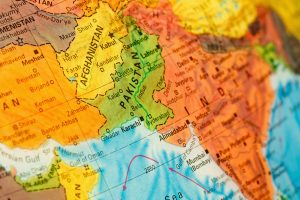Since the Taliban recaptured power in August 2021, ties between Pakistan and Afghanistan have encountered a period of uncertainty. Pakistan has particularly been concerned about cross-border militant attacks, which have claimed many lives, especially those of Pakistani security forces.
Pakistan had anticipated that the Taliban would take concrete action against the Tehreek-e-Taliban-e-Pakistan (TTP) or at least prevent the group from launching attacks on Pakistani soil. This hope went unfulfilled, with the TTP increasing their attacks in recent months, further complicating bilateral ties.
However, in a significant step toward enhancing collaboration and resolving security-related concerns, Pakistan and Afghanistan have established a joint committee to facilitate the movement of nationals between the two countries. The Taliban’s Ministry of Foreign Affairs and the Pakistani embassy in Kabul will form this committee, reflecting the Taliban regime’s commitment to practical engagement with Pakistan and ensuring lasting peace. The task team’s establishment will be instrumental in both restricting the movement of militant groups and preventing cross-border incursions, contributing significantly to peace and security along the border.
Additionally, the recent opening of the Spin Boldak-Chaman border trade route further promotes seamless trade between Afghanistan and Pakistan, benefiting the business communities of both countries. These collaborative efforts not only promote economic development but also foster trust and cooperation between Pakistan and Afghanistan.
To address concerns about terrorism, the Taliban authorities in Afghanistan have also announced plans to relocate thousands of Pakistani refugees away from border provinces. This move aims to prevent their involvement in attacks or violence in Pakistan, as alleged by Islamabad. By relocating these refugees to far-flung provinces in Afghanistan, the Taliban aim to ensure that they do not have access to the border regions. This initiative addresses Pakistan’s concerns regarding the presence of TTP leaders and fighters among the refugee population that fled to Afghanistan following Pakistan’s counterterrorism operation in Waziristan in 2014.
These developments can be traced back to the May 7 visit by Afghanistan’s foreign minister, Amir Khan Muttaqi, to Islamabad. At the time, the foreign ministers of both countries expressed their commitment to boost trade and reduce tensions along their shared border, particularly in light of increased attacks on Pakistani security forces. The agreement concluded between the two countries concentrated on enhancing bilateral trade, combating terrorism, and improving overall ties.
The visit also included conversations between the Afghan foreign minister and Pakistan’s army chief, emphasizing regional security, border operations, and the formalization of bilateral security mechanisms. This demonstrates the amenability of both nations to counter the common challenges of terrorism and extremism via enhanced cooperation.
The recent developments underscore the ongoing commitment of Pakistan and Afghanistan to address security concerns and enhance economic and trade ties. Both nations recognize that their security and stability are intertwined. A stable Afghanistan ensures a secure western frontier for Pakistan, whereas progress in Pakistan would pave the way for a prosperous Afghanistan. Strengthened ties between the two countries are pivotal for regional security and prosperity.
These initiatives and engagements depict an upward trajectory in bilateral relations, emphasizing the shared goal of resolving security issues and fostering mutual well-being. Through continuous efforts, Pakistan and Afghanistan can lay the foundation for a more secure, stable, and prosperous future for their people and the region as a whole.













